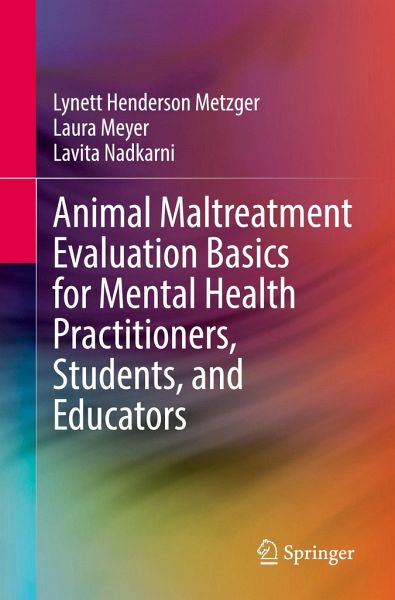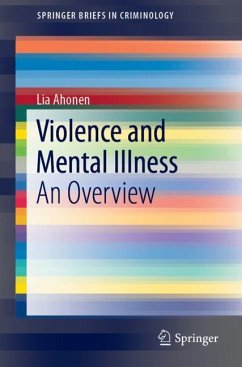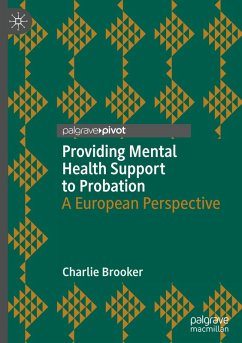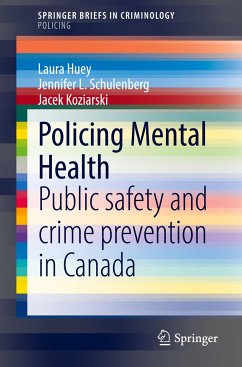Dr. Lynett Henderson Metzger earned her JD from the University of Denver's College of Law and her PsyD from the University of Denver's Graduate School of Professional Psychology (GSPP). She is a Clinical Associate Professor and Director of the Master's in Forensic Psychology Program at the GSPP, where she teaches master's and doctoral-level courses on subjects ranging from clinical interviewing and diagnosis to mental health law to courses focused on diversity, equity, and inclusion (DEI). Her areas of interest and scholarship include clinical training, DEI, and the intersection of law and psychology, including as these topics relate to animal maltreatment and the relationships between human and nonhuman animals. Dr. Henderson Metzger has co-presented on legal, historical, and cultural aspects of animal maltreatment and forensic animal maltreatment evaluation training at the American Psychological Association Conference (2018), Canadian Violence Link Conference (2021), and American Psychology-Law Society Conference (2020 and 2022). Dr. Laura Meyer is a Clinical Professor and the Director of Programmatic Evaluation and Assessment in the Graduate School of Professional Psychology, where she has taught courses in statistics and research methods since 2007. Since 2017, she has taught a course on animal maltreatment evaluation and treatment. In 2018, she was the PI of an internal grant at the University of Denver, in collaboration with the university's Schools of Social Work and Law, that focused on developing clinical competencies for animal maltreatment evaluations and conducting psychometric analyses of a risk assessment measure. In 2019, she co-authored a paper titled "Traumatized witnesses: Review of childhood exposure to animal cruelty," published in the Journal of Child and Adolescent Trauma. She has presented on the link between animal and human abuse (Colorado Animal Welfare Conference, 2019), collaborative responses to animal maltreatment cases (Canadian Violence Link Conference, 2019), and animal protection officers' professional stressors and training needs (American Psychological Law Society Conference, 2020). Dr. Lavita Nadkarni received her Master's degree in Forensic Psychology from City University-John Jay College of Criminal Justice, and her doctorate in Clinical Psychology from Adelphi University's Derner Institute of Advanced Psychological Studies. She is Associate Dean, Director of Forensic Studies, and Professor at the University of Denver's Graduate School of Professional Psychology (GSPP), where she teaches graduate level students and supervises doctoral and postdoctoral students who conduct forensic assessments for those who are legally involved and underserved, including animal maltreatment evaluations. She has been teaching, consulting, and presenting on issues related to forensic psychology for more than 30 years. Her research interests lie in the area of interpersonal violence and trauma, entitlement, graduate clinical and forensic training, animal abuse evaluation and treatment and diversity issues within psychology. Dr. Nadkarni is a well-regarded scholar (one of the co-Editors of the Principles of Forensic Report Writing and Handbook of Multicultural Counseling Competencies), and is the Associate Editor for Professional Psychology: Research and Practice. Dr. Nadkarni is an active member of the American Psychology-Law Society, the National Council of Schools and Programs of Professional Psychology (NCSPP), and has held leadership positions within these organizations, most recently as President of NCSPP. She has presented on animal maltreatment evaluations (American Psychological Association Conference, 2019; Animal Law Review Symposium, 2021, American Psychology-Law Society Conference, 2022), collaborative responses to animal cruelty cases (Canadian Violence Link Conference, 2019), and is involved in research on animal protectionofficers' professional stressors and training needs. For more information about Forensic Animal Maltreatment Evaluations (FAMEs), please contact Dr. Nadkarni at Lavita.Nadkarni@du.edu.














